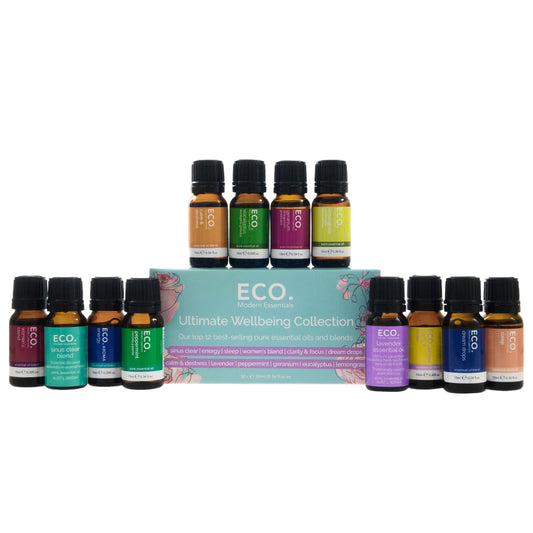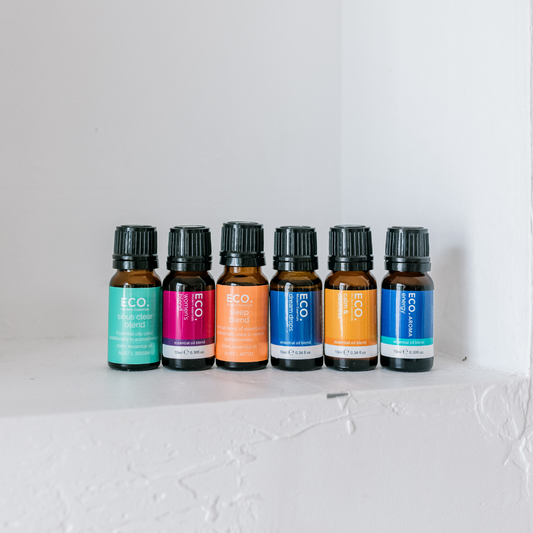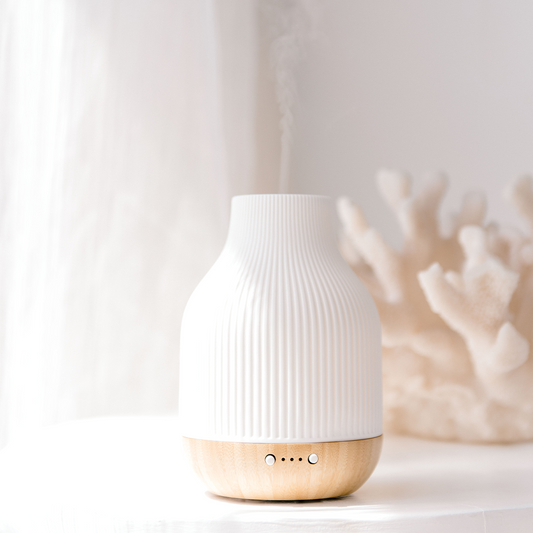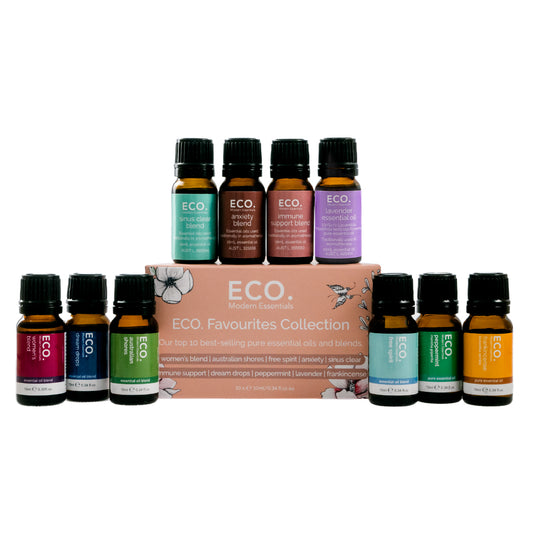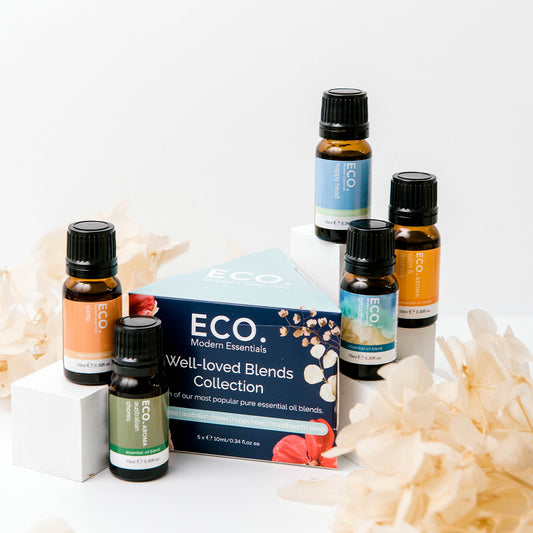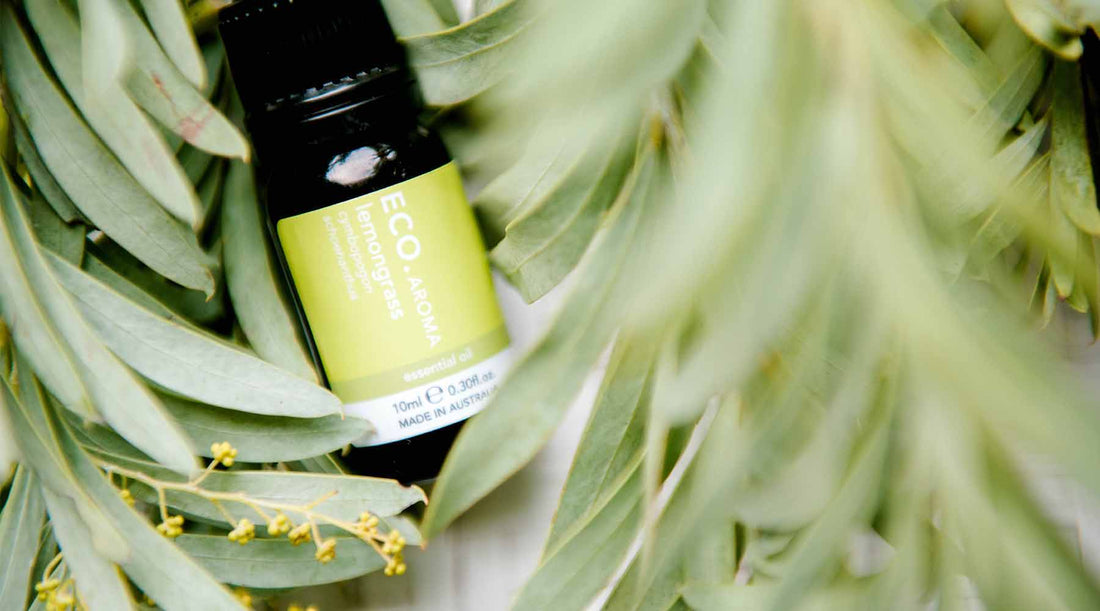
Benefits & Uses of Lemongrass Essential Oil
Lemongrass essential oil is powerful, uplifting and inspiring. This is reflected in the nature of the plant itself. A hardy grass that is quick growing and can be harvested many times a year. The tenacious roots of the grass hold the soil together and may be used to prevent soil erosion. In some gardens, thick borders of Lemongrass are planted to prevent weeds from encroaching into garden beds or as a barrier to keep snakes out. Lemongrass enjoys hot tropical weather and a well draining soil. Other aromatic members in this plant family include Palmarosa, Vetiver and Citronella.
Where is Lemongrass essential oil from?
Cymbopogon schoenanthus (Lemongrass) oil is sourced from Guatemala.
How is Lemongrass essential oil made?
The essential oil of Lemongrass is produced by steam distilling fresh or dried plant material. The leaves are added to water and then boiled. The steam is captured and collected. Once the steam cools the essential oil floats to the top and the water or hydrosol underneath can be used for aromatherapy, beauty preparations or as a flavouring.
What does Lemongrass look like?
The Lemongrass plant are pale yellow-green stalks similar to green onions but what an aromatic citrus scent. It has a bulbous bottom but has woody, tough stalks.
What does Lemongrass essential oil smell like?
Lemongrass essential oil, the aromatic alarm clock! Imparting a spark of joy to the atmosphere and reminds us of the simple pleasures in life. It is a powerful scent similar to the plant, it has a citrus earthy yet sweet like scent.
History of Lemongrass
Lemongrass is a familiar flavour in the many cuisines and dishes of Asia and Africa. The plant has also been made into tea that can be added to beauty preparations for the hair and skin. Lemongrass is an ingredient in a medicinal ‘fever tea’ which was used to treat various infections and symptoms such as fever, headaches and digestive upset.
In the 17th century Lemongrass was commercially produced and although the essential oil had been produced for a long time it began increased global use from the 1940’s.
Lemongrass has been the subject of large amounts of scientific research because the broad spectrum anti-microbial properties of the essential oil may be used to treat anti-biotic resistant strains of bugs or ‘super bugs’. The oil may also be of use as a natural preservative.
What are the benefits of Lemongrass essential oil?
- Lemongrass is reputed to be repairing and toning to connective tissue and elastin fibres. Connective tissue is abundant in the body, it is in skin, the walls of blood vessels, tendons and ligaments. Regular topical application of Lemongrass is thought to help maintain the elastic quality of some connective tissues making it beneficial for varicose veins and bruising.
- With such a refreshing and bright aroma, Lemongrass makes a valuable ingredient in a homemade disinfectant spray. Research shows Lemongrass to have promising and powerful anti-bacterial and anti-fungal properties.
- Lemongrass has been used as an insect repellent and may even be as effective as a synthetic version. Try diffusing Lemongrass near doorways, windows and entrances to help keep flying pests out of the house. A surface spray with Lemongrass may help deter smaller crawling bugs too. For personal use you may like to either create an insect repellent oil or add Lemongrass to a balm base.
- Historically, the lively Lemongrass plant has been used to treat various digestive ailments such as stomach upset caused by intestinal infections and gastroenteritis, commonly known as food poisoning or stomach flu. This may be due to its strong chemical constituents that have anti-septic and anti-microbial properties.
- It is also prized for its stimulating effect on the digestive system. It may assist those who have slow or weak digestion and experience indigestion, fluid retention and cellulite.
- Feelings of dullness, being unable to concentrate and general fatigue may be improved with an energetic boost of Lemongrass. This cooling and refreshing essential oil can elevate us out of a slow and lethargic mind set into an energetic and focused place.
How do you use Lemongrass essential oil?
- Diffuser: Add 6-8 drops of Lemongrass essential oil to a diffuser.
- Quick fix: A few deep inhalations from the bottle can help when you are at work, in the car or anytime you need a quick break.
- Shower: Add 2-3 drops to the corner of the shower and enjoy the benefits of steam inhalation.
- Topically: Mix 1 drop of chosen essential oil with 5ml carrier oil and apply to wrists, chest or back of the neck.
- Hand or foot bath: Add 2 drops to a bowl of water to treat nail infections.
- Compress: Add 2 drops of essential oil to a bowl of water. For treating inflammation or to cool down use cold to room temperature water. Agitate a face washer in the water, wring out excess moisture and apply washer to the affected area. Repeat two or three times as the compress cools down or warms up. Cool compresses are recommended for application to sore muscles and joints after exercise.
- Steam Treatment (for face): Add 2 drops of essential oil to a bowl of steaming hot water. Place your face close to the bowl and cover the back of your head and bowl with a towel to trap the aromatic vapours. Caution due to risk of burns or scalding and keep eyes covered during treatment.
Blending
The citrus tone of Lemongrass is very sharp and powerful. Essential oils like Lavender or Geranium can take the crisp edge off this fragrance in a blend. Other oils like Peppermint, Spearmint and Pine also blend well with Lemongrass. With a strong fragrance like Lemongrass, start with less drops in your blend and add more at the end if desired to avoid being overpowered with its glorious citrus scent.
Contraindications of Lemongrass essential oil
Lemongrass is considered safe for those with health conditions, for young children or during pregnancy. It has been reported that Lemongrass may cause skin irritation and that this effect is more likely if used in the bath. The high citral content in this essential oil is probably the cause of skin irritation.





